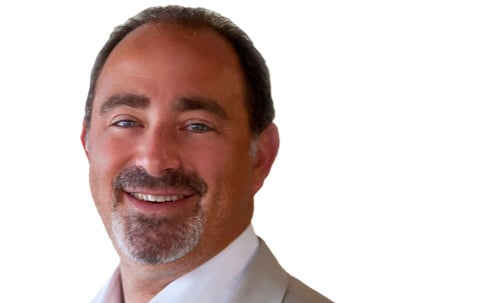NEWPORT BEACH, CA-Yes, there is a recovery in progress. As hard as it may be to believe amid the S&P downgrade, Wall Street turmoil and the financial troubles in Europe, the US economy is heading in the right direction. Albeit slowly.
That was a big part of the message at RealShare Orange County 2011 on Thursday at the Balboa Bay Club in Newport Beach, CA. The event, as previously reported by GlobeSt.com, drew a record more than 500 attendees.
The recovery was one of the topics of the event’s keynote panel, featuring economists Chris Thornberg of Beacon Economics and Kerry Vandell, director of the Center for Real Estate at the Paul Merage School of Business at UCI, with regional managing director Martin Pupil of Colliers International as moderator.
We Also Recommend:
Thornberg, founding partner at Beacon, said that despite the tremors reverberating through the world, such as the large hits to the financial markets, the US economy remains in the midst of a slow recovery. “The financial markets are shuddering because they weren’t expecting a slow recovery. They were expecting a fast recovery. What you are seeing now, the past few weeks, has been a correction,” Thornberg said.
The market will restabilize in the second half of the year, Thornberg said, but he warned that, “We, as a nation, are still overspending. Until we take a step back and recognize that we need to get off the public dole, we will lag behind.”
Ultimately, fundamentals for growth are at work in the economy. “We just need to take a breath and we will be fine. I remain positive and optimistic,” he said.
Vandell also remained positive in his outlook. “If Wall Street didn’t have volatility, no one would make any money,” Vandell said. “These are the times when there are massive amounts of wealth transfer going on.”
Vandell, who is among those that don’t believe a double-dip recession will occur, said that for the most part, the nation has worked out a lot of the dislocations and a lot of the imbalances. Although he did say that issues exist with respect to Europe, with instability in the Middle East, and in regard to the trade deficit, the single most damaging factor affecting the recovery is the political battles in Washington, DC. Vandell called these battles “counterproductive.”
Thornberg cited the US trade imbalance as a problem. “Our tax cuts are stimulating China,” he said, but those cuts are not helping the US economy.
Vandell also touched on national policy. “One thing that Congress and the presidency has been bad at over the years is recognizing the need to fund the entitlements that they are providing,” he said. “Unfortunately, lowering interest rates isn’t having much of an impact because there isn’t the demand there. The question is really not so much how do we get through this stimulus, it is how do we create an environment of confidence and stability.”
Thornberg ended the panel by pointing out that there is light at the end of the tunnel. “Honestly, I realize there is a lot of discussion about double dips, but recessions don’t come out of the blue,” he said. Although the economy has suffered a shock, he said, the biggest problem he sees globally is in Europe. “There really aren’t that many issues indicating a double-dip. So, yeah, we are stumbling, but you’ve got to take a step back and take a deep breath.”
Following the economic outlook panel, CoreNet Global Southern California presented the final panel of the day: “Where Is Corporate America Expanding? The panel focused on, among other topics, questions like: when can jobs be expected to follow the recovery that has driven port traffic, what has produced an improved Orange County office market, and what are other signs of recovery?
Partner Bob Hamilton of the law firm Allen, Matkins, Leck, Gamble, Mallory & Natsis moderated and kept the tone pretty upbeat. Panelists included executive director Andy Cohen of Gensler; vice president Reid McCartney of the Capital Group Cos.; managing partner Jeff Manley of CresaPartners; principal Brad Neglia of LBA Realty; senior director of corporate services Dick Salvi of Western Digital Corp.; and Sanford Smith, senior vice president of real estate, facilities, construction and operations at Hoag Memorial Hospital Presbyterian.
Manley pointed out that now is still a great time to be a tenant, a trend he doesn’t see changing any time in the near future. But what drives business demand for space is job growth, Manley said, “and we haven’t seen any substantial indication that it will change in the near future.” One of the challenges that companies face is doing more with less, Manley pointed out. “Typically, even when you are renewing someone, in many instances, they need less space,” he said.
Cohen agreed, pointing out what he called “a radical change going on for our clients” in the market for office space. For example, he said, tenants are taking away square footage from individual workspaces in offices and putting it instead into interactive spaces like conferences, coffee bars and other venues.
According to Neglia, transactions are closing. “What we are trying to do is retain the tenants we have. If you can keep your tenants, that’s really important and, generally speaking, tenants will pay more not to move,” he said. “Small companies are still struggling because there is still a lot of uncertainty out there. Bigger companies are taking advantage of economics and making decisions.”
Neglia also noted that large corporations are consolidating their spaces. “They may be expanding, but if they can consolidate under one roof and take advantage of utilizing more open area, that is where we are seeing the opportunities,” he said.”
When Salvi discussed the company’s decision to be under one roof, he too pointed to collaborative space. “Instead of being spread out in multiple buildings, we ended up under one roof with 100,000-square-foot floors where we can get a lot of engineers next to each other collaborating. We could give people the tools they need to do their job,” he said. “We try and equalize people and put the square footage we get back into more collaborative space.”
Following the final panel, the conference featured a cocktail hour and networking session. RealShare Orange County 2011 was presented by ALM’s real estate media group, publisher of Real Estate Forum and GlobeSt.com, which produces a full slate of events annually throughout the US that focus on geographic markets as well as trends and topics in the commercial real estate industry.
Continue Reading for Free
Register and gain access to:
- Breaking commercial real estate news and analysis, on-site and via our newsletters and custom alerts
- Educational webcasts, white papers, and ebooks from industry thought leaders
- Critical coverage of the property casualty insurance and financial advisory markets on our other ALM sites, PropertyCasualty360 and ThinkAdvisor
Already have an account? Sign In Now
© 2024 ALM Global, LLC, All Rights Reserved. Request academic re-use from www.copyright.com. All other uses, submit a request to [email protected]. For more information visit Asset & Logo Licensing.








